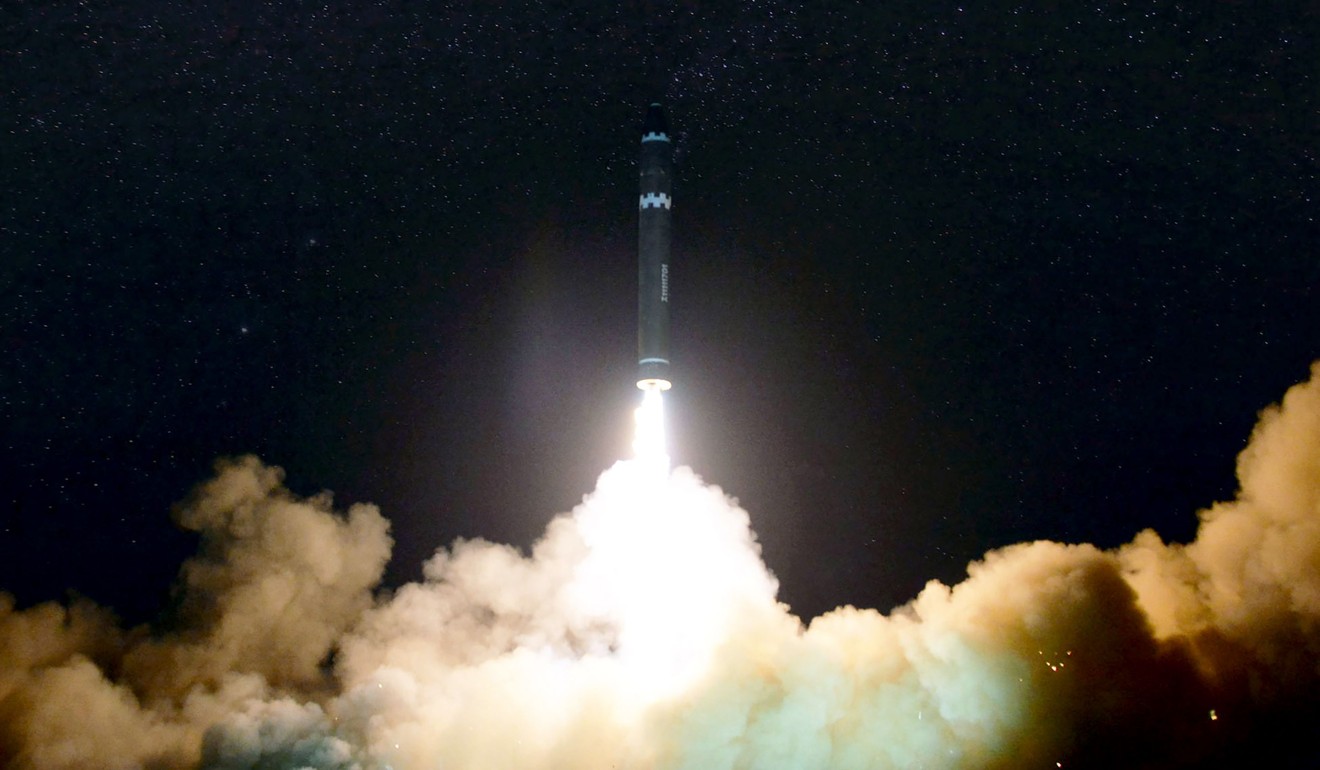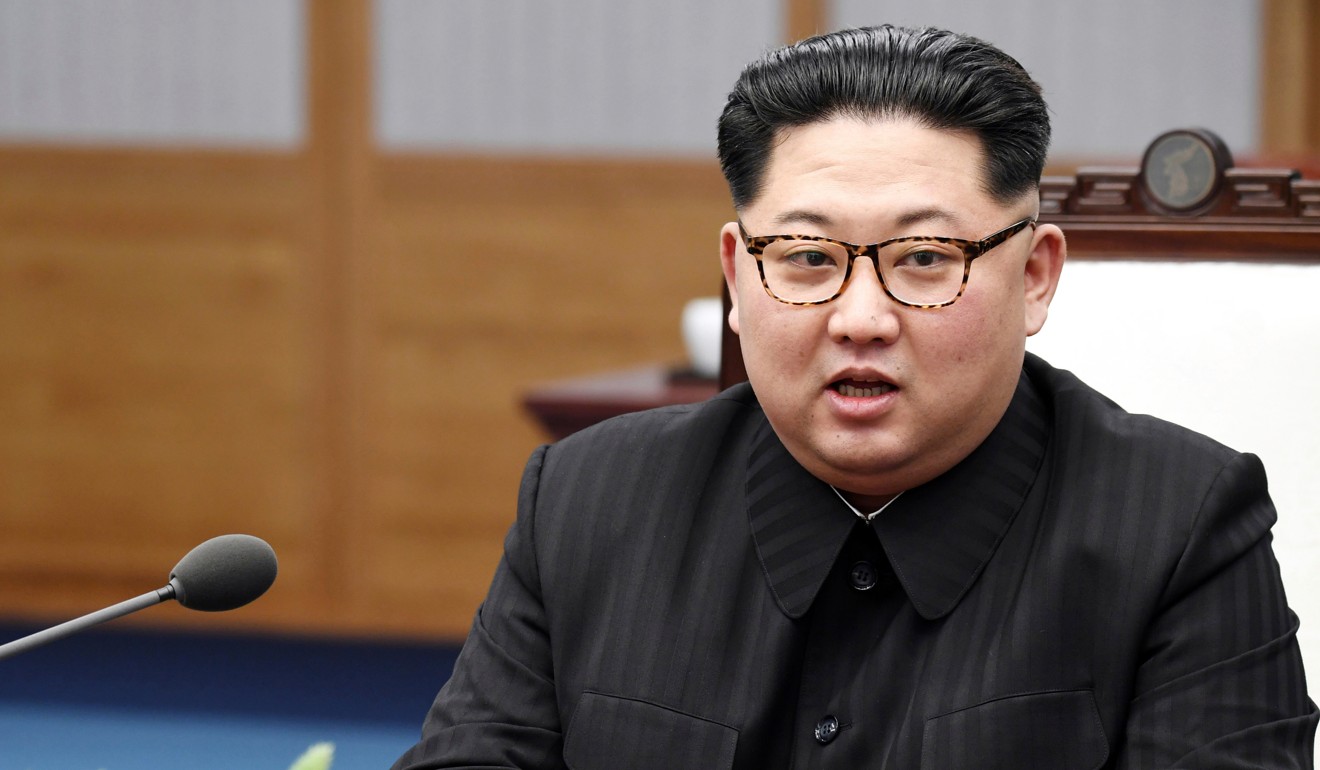
‘Too much to lose’: why Donald Trump and Kim Jong-un won’t cancel the US-North Korea summit
Despite the tough talk, the two leaders are not likely to abandon their plans for a meeting, observers say
A summit between the leaders of the United States and North Korea will still go ahead because there is too much at stake at home for either side to cancel.
And even if the summit were postponed, the eventual outcome would be the same: progress but no breakthrough.
That was the assessment of diplomatic observers on Wednesday after US President Donald Trump warned that his meeting with North Korea’s Kim Jong-un might not take place on June 12 as planned.
Trump also underlined his suggestion that Kim had hardened his position towards Washington and Seoul as a result of the North Korean leader’s meeting earlier this month with Chinese President Xi Jinping.
China’s foreign ministry said on Wednesday that China had played a positive role over the Korean peninsula and hoped the planned US-North Korea summit could proceed smoothly.
The developments are expected to be high on the agenda when Chinese Foreign Minister Wang Yi meets US Secretary of State Mike Pompeo in Washington during a stopover on his way back to China from Argentina.
Pyongyang has taken a tougher rhetorical and diplomatic line against South Korea and the US in the last week. It cancelled high-level talks with Seoul and lashed out at US national security adviser John Bolton for suggesting Libya as a precedent for a nuclear-free North Korea, a model that would involve Pyongyang destroying all documents and equipment related to its nuclear and missile programmes before sanctions could be lifted.

However, North Korea has granted visas to eight journalists from the South to witness the dismantling of its nuclear test site this week.
South Korean lawmaker Park Byeong-seug, from the ruling Democratic Party of Korea (DPK), said Washington and Pyongyang both needed a successful summit to meet their own political goals and interests, and it was highly likely the meeting would go ahead.
“The Trump administration needs to negotiate with North Korea to achieve peace on the Korean peninsula ahead of the upcoming midterm elections,” Park said.
“North Korea must use this opportunity to enter the international community and focus on economic development. If it misses this opportunity, it will become harder for [North Korea] to gain momentum for economic development.”
In a surprise announcement last month, Kim told the elite of the ruling Workers’ Party of Korea that he would move away from his byungjin strategy of developing nuclear weapons and the economy simultaneously, to put the full focus on rebuilding the country’s economy.
South Korean lawmaker Lee Seok-hyun, also from the DPK, agreed that Washington and Pyongyang desperately wanted the talks and both sides were using rhetoric to jockey for position.
“Trump is a businessman and he would not want to put himself in a weaker position ahead of the summit. He had to show equal measure against the North’s threat to reconsider the summit,” Lee said.
“The summit will not be postponed.”

Zhao Tong, a fellow at the Carnegie-Tsinghua Centre for Global Policy, said the outcome of the summit was more important than when it took place, and Trump might be trying to delay the meeting because he did not have much other leverage.
“The ideal summit outcome for the US is for North Korea to give up its nuclear programme, and Trump won’t mind postponing the talks if he can ultimately achieve this goal,” Zhao said.
“The timing may still vary depending on Trump, but the outcome of the summit is not likely to change: Pyongyang will retain its nuclear deterrence. That is the reality.”
Observers said Kim and Trump were trying to blame each other for the tensions but neither could walk away from the talks without being accused of derailing the peace process.
Lim Tai Wei, an adjunct research fellow at the National University of Singapore’s East Asian Institute, said it was not all tough talk from the US – Trump had also offered Kim the prospect of economic gains to strike a deal.
“This indicates there is still an intention from the US side to have the possibility and prospect for economic outreach to Pyongyang if the weapons and nuclear deals could ... work out,” Lim said.
“Delaying is not as important an issue as the summit taking place. If the time is ready for both sides bilaterally, if the summit takes place, it is still an overall positive development.”
Ko Yu-hwan, a professor of North Korean Studies at Dongguk University in Seoul, agreed that Trump’s suggestion that the summit might be delayed was a negotiating tactic.
“Trump can’t accept a failed summit, so he is using strong words to try to move the talks in his direction,” Ko said.
US Representative Ted Lieu, a member of the House Foreign Affairs Committee, said North Korea had wanted a summit with the US for a long time.
“Both sides could declare victory and then go forward with a long process of getting to an eventual deal,” he said.
“All the three countries, South Korea, North Korea and the US, have big incentives to have this summit actually happen.”
Additional reporting by Laura Zhou and Zhenhua Lu

